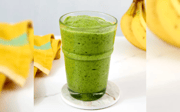Are you accidentally harming your heart? What’s the better sweet for you–A can of coke or an ice cream cone?
- Replies 0
In the bustling aisles of the grocery store or the tempting displays at the local café, the choices seem endless: a fizzy can of soda or a creamy scoop of ice cream?
While both may call out to your sweet tooth, a groundbreaking study has revealed that one of these indulgences could be putting your heart at greater risk.
Here at The GrayVine, we're committed to helping you navigate the complexities of health and nutrition, especially as they pertain to our vibrant community of seniors. So, let's dive into the sweet—and not so sweet—truth about these treats.
At least 50% of Americans are said to consumer at least one sugar-sweetened beverage per day. By consuming excessive amounts of added sugars, negative health outcomes are to be expected, such as obesity, heart disease, and dental cavities, among many others.
However, a study published in Frontiers in Public Health, has stirred the pot by suggesting that not all added sugars affect our heart health equally. Rather, sipping on sugary beverages could be worse than consuming other forms of added sugar.
Researchers followed 69,705 Swedish adults over 22 years, examining their intake of sugar-sweetened drinks, treats, and toppings, and the incidence of various cardiovascular diseases (CVDs).
The findings were startling: those who frequently sipped on sugar-sweetened beverages faced a significantly higher risk of heart-related issues, including ischemic stroke, heart failure and aortic stenosis, than those indulging in other sugary treats.

Sugar-sweetened beverages, including sodas and fruit drinks (excluding pure fruit juices), were linked to a:
- 19% higher risk of ischemic stroke
- 18% higher risk of heart failure
- 11% higher risk of atrial fibrillation
- 31% higher risk of abdominal aortic aneurysm
On the flip side, a lower intake of treats, such as pastries and ice cream, was surprisingly associated with a higher risk of all studied outcomes.
This paradox may be due to the social aspect of enjoying these treats, often in the company of others, which could have positive effects on overall health.
Why the stark difference between liquid and solid sugar sources?
The study authors suggest that liquid calories from sugary drinks may lead to lower satiety, prompting us to consume more without compensating by eating less elsewhere. This can contribute to weight gain and obesity, both notorious risk factors for CVD.
Conversely, treats like ice cream and pastries are rarely eaten alone. They're often part of a social ritual or accompanied by more nutrient-dense foods, potentially mitigating their negative health impacts.
The Path to a Heart-Healthy Lifestyle
So, what can you do to protect your heart without forgoing life's sweet pleasures? Here are some heart-smart strategies:
1. Become a Label Detective: Scrutinize the ingredient list and nutrition facts on beverages. Look for hidden sugars and opt for drinks with minimal added sugars.
2. Water is Your Best Friend: Embrace water as your primary beverage. If you're craving flavor, try unsweetened sparkling water or herbal teas.
3. Choose Wisely: If you love fruit flavors, go for 100% fruit juice without added sugars, but remember to enjoy it in moderation.
4. Get Creative: Experiment with homemade drinks. Infuse water with fruits or herbs for a refreshing twist without the added sugar.
5. Moderation is Key: Enjoy treats in moderation and as part of social gatherings, which can have a positive impact on your mental and physical health.
The type and source of added sugar in your diet can play a significant role in your risk for developing cardiovascular diseases.
While it's important to monitor the quantity of sugar you consume, this study underscores the need to be particularly cautious with sugar-sweetened beverages.

Have you made changes to your diet that have positively impacted your heart health? Do you have a favorite low-sugar drink recipe to share? Or perhaps you're looking for more advice on how to reduce sugar in your diet? We invite you to share your experiences and questions in the comments below!
While both may call out to your sweet tooth, a groundbreaking study has revealed that one of these indulgences could be putting your heart at greater risk.
Here at The GrayVine, we're committed to helping you navigate the complexities of health and nutrition, especially as they pertain to our vibrant community of seniors. So, let's dive into the sweet—and not so sweet—truth about these treats.
At least 50% of Americans are said to consumer at least one sugar-sweetened beverage per day. By consuming excessive amounts of added sugars, negative health outcomes are to be expected, such as obesity, heart disease, and dental cavities, among many others.
However, a study published in Frontiers in Public Health, has stirred the pot by suggesting that not all added sugars affect our heart health equally. Rather, sipping on sugary beverages could be worse than consuming other forms of added sugar.
Researchers followed 69,705 Swedish adults over 22 years, examining their intake of sugar-sweetened drinks, treats, and toppings, and the incidence of various cardiovascular diseases (CVDs).
The findings were startling: those who frequently sipped on sugar-sweetened beverages faced a significantly higher risk of heart-related issues, including ischemic stroke, heart failure and aortic stenosis, than those indulging in other sugary treats.

Consuming sugar-sweetened beverages is linked to a higher risk of various cardiovascular diseases compared to other sources of added sugar, as indicated by a new study. Image source: Unsplash / James Yarema and Priscilla Du Preez.
Sugar-sweetened beverages, including sodas and fruit drinks (excluding pure fruit juices), were linked to a:
- 19% higher risk of ischemic stroke
- 18% higher risk of heart failure
- 11% higher risk of atrial fibrillation
- 31% higher risk of abdominal aortic aneurysm
On the flip side, a lower intake of treats, such as pastries and ice cream, was surprisingly associated with a higher risk of all studied outcomes.
This paradox may be due to the social aspect of enjoying these treats, often in the company of others, which could have positive effects on overall health.
Why the stark difference between liquid and solid sugar sources?
The study authors suggest that liquid calories from sugary drinks may lead to lower satiety, prompting us to consume more without compensating by eating less elsewhere. This can contribute to weight gain and obesity, both notorious risk factors for CVD.
Conversely, treats like ice cream and pastries are rarely eaten alone. They're often part of a social ritual or accompanied by more nutrient-dense foods, potentially mitigating their negative health impacts.
The Path to a Heart-Healthy Lifestyle
So, what can you do to protect your heart without forgoing life's sweet pleasures? Here are some heart-smart strategies:
1. Become a Label Detective: Scrutinize the ingredient list and nutrition facts on beverages. Look for hidden sugars and opt for drinks with minimal added sugars.
2. Water is Your Best Friend: Embrace water as your primary beverage. If you're craving flavor, try unsweetened sparkling water or herbal teas.
3. Choose Wisely: If you love fruit flavors, go for 100% fruit juice without added sugars, but remember to enjoy it in moderation.
4. Get Creative: Experiment with homemade drinks. Infuse water with fruits or herbs for a refreshing twist without the added sugar.
5. Moderation is Key: Enjoy treats in moderation and as part of social gatherings, which can have a positive impact on your mental and physical health.
The type and source of added sugar in your diet can play a significant role in your risk for developing cardiovascular diseases.
While it's important to monitor the quantity of sugar you consume, this study underscores the need to be particularly cautious with sugar-sweetened beverages.
Key Takeaways
- Consuming sugar-sweetened beverages is linked to a higher risk of various cardiovascular diseases compared to other sources of added sugar, as indicated by a new study.
- The study, which followed 69,705 Swedish adults over 22 years, found that consuming more than eight servings of sweetened drinks per week was associated with an increased risk of several cardiac issues, such as ischemic stroke and heart failure.
- While liquid calories provide lower satiety and may lead to weight gain, the consumption of treats and toppings might be mitigated by eating other nutrient-dense foods simultaneously.
- The findings suggest there could be significant health benefits to limiting or avoiding sugar-sweetened beverages, with alternatives available for those seeking lower-sugar or zero-sugar drinks.
Have you made changes to your diet that have positively impacted your heart health? Do you have a favorite low-sugar drink recipe to share? Or perhaps you're looking for more advice on how to reduce sugar in your diet? We invite you to share your experiences and questions in the comments below!






